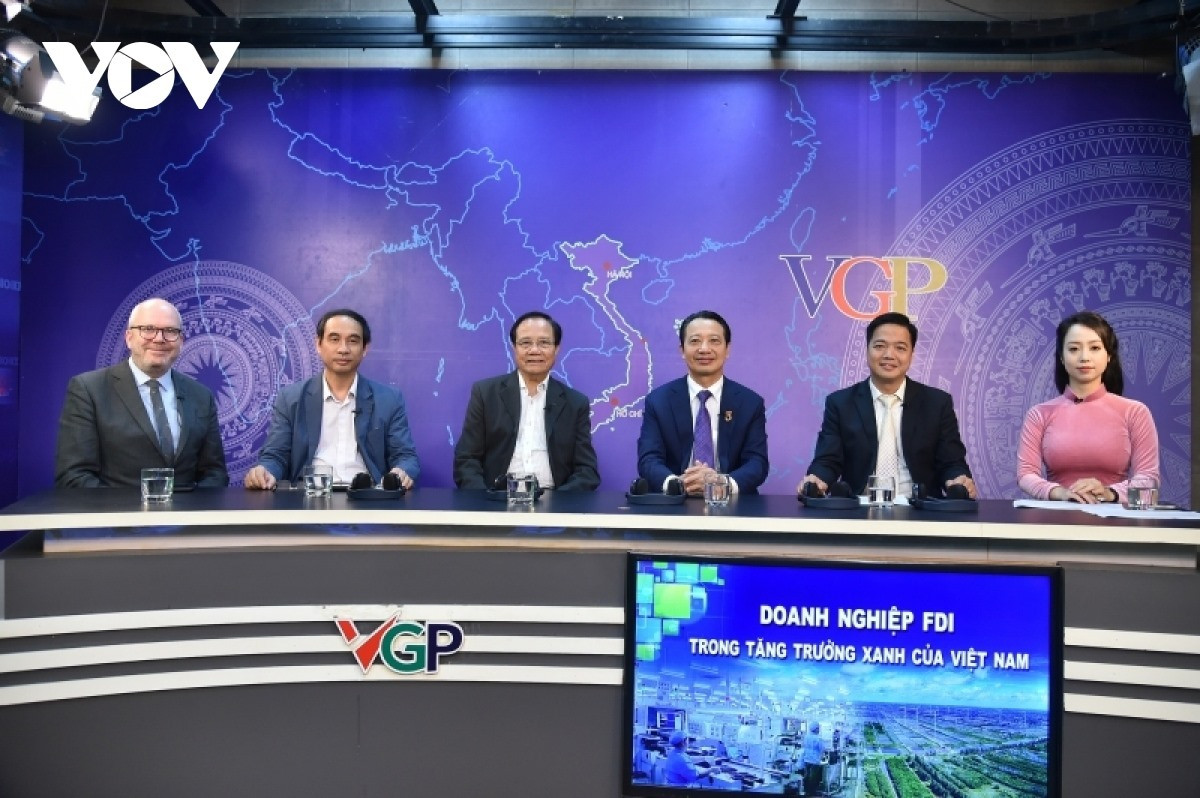VOV.VN - Domestic and foreign firms have so far poured nearly US$9 billion into green growth projects, including investments in renewable energy and equipment procurement for the green economy.

This figure accounts for roughly 2% of GDP and it has grown on average over the past two years, achieving a fairly high growth rate of 10% to 13% in the process.
This is a very good signal, and businesses, including foreign direct investment (FDI) enterprises, are helping to create a change in corporate culture and public awareness, from production to consumption, contributing to the realisation of green growth goals, said Nguyen Anh Tuan, deputy director of the Foreign Investment Agency under the Ministry of Planning and Investment at a workshop in Hanoi on April 27.
According to Tuan, Vietnam is widely viewed as an attractive foreign investment destination thanks to continued improvements in the investment environment, political stability, and high potential for economic growth.
However, the goal of green growth is particularly challenging as there are not many large enterprises pouring investment in green growth projects, he said.
Nguyen Van Toan, vice chairman of the Vietnam Association of Foreign Invested Enterprises, pointed out that the State is determined to achieve green growth, but it has yet to take specific steps toward realizing short-term targets, not to mention long-term targets.
At the COP26 climate conference, the Vietnamese Prime Minister made a strong political commitment to bring net emissions to zero by 2050. To this end, Vietnam is required to develop a specific roadmap for meeting the COP26 commitments, with a specific focus on seizing opportunities to mobilise domestic and foreign resources for low-emission development projects, he stressed.
Toan also shared it is a positive sign that in recent times foreign investors have contributed a lot to the overall development of Vietnam, including green growth models.
Chris Hogg, head of Sustainability and Communications, Zone Asia, Oceania and Africa at Nestlé, said the enterprise also wishes to become a zero-emission firm, meaning that it needs a specific implementation roadmap.
2050 may be a long time away, but the company needs a plan in order to map achievements and keep track of goals. For example, ahead 2025 there will be a 20% reduction in net emissions, a 50% reduction by 2030, before reaching zero in 2050, he explained.
Currently, green growth has become an inevitable choice - a goal that every country is aiming for. This is a new approach for achieving a low carbon economy and harmonizing economic development with ecological conservation.
With thousands of projects in use nationwide, the FDI sector has increasingly asserted its important role in the Vietnamese economy. In particular, Lego and Nestlé are typical examples of FDI enterprises in terms of making important contributions to the country’s sustainable development.
VOV